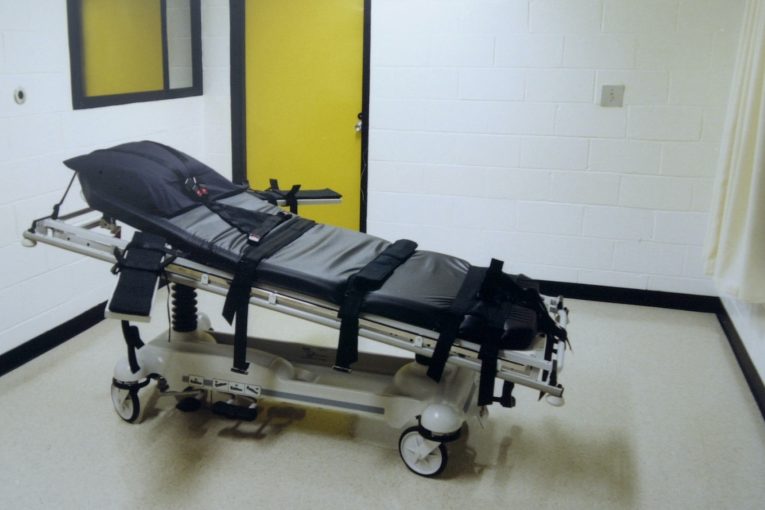

By Shellsea Lomeli
WASHINGTON, DC – A last-minute lawsuit led to a pause in the second scheduled federal execution after a nearly two-decade hiatus.
Wesley Ira Purkey was found guilty of kidnapping a child—resulting in the child’s death—in 2003 by a jury in the U.S. District Court for the Western District of Missouri. He is one of the five death-row inmates convicted of murdering children who were scheduled for execution following Attorney General William P. Barr’s direction to the Federal Bureau of Prisons to resume federal executions after a 17-year lapse.
On the scheduled day of Purkey’s execution, July 15, 2020, his attorneys filed a 26-page lawsuit against the Attorney General based on new findings of the physical and mental health conditions of their client.
“Five minutes before this filing, Mr. Purkey’s counsel learned that the Government appears to have had scientific confirmation in their possession of significant structural abnormalities in Mr. Burkey’s brain that are consistent with cognitive impairment such as vascular dementia and other conditions,” read the lawsuit.
The attorneys note that access to these tests had been requested for months but denied by the government consistently until a week ago.
“The Government provided reports…late last week, but did not deliver the underlying scans to Mr. Purkey’s expert until yesterday. Although Plaintiff’s (Purkey) expert has not been able to verify the extent of the atrophy and damage to Plaintiff’s brain through the actual scans, the reports themselves make clear that significant abnormalities exists.”
Purkey’s attorneys labeled Attorney General Barr’s actions to short-circuit any delay to the execution as “obstructive behavior,” arguing that the government has not allowed for a meaningful review of the serious competency claim.
“Plaintiff (Purkey) is entitled to such a process review, and without it, his execution would violate the United States Constitution.”
The cognitive impairment caused by the brain abnormalities which can cause trouble with memory among other things adds to the long list of physical and mental illnesses Purkey has been diagnosed  with, including progressive dementia, schizophrenia, and complex-Post Traumatic Stress Disorder (PTSD).
with, including progressive dementia, schizophrenia, and complex-Post Traumatic Stress Disorder (PTSD).
The lawsuit argues that he is mentally unfit to face capital punishment, and execution without a review of his condition would go against the United States Constitution.
Purkey is “unable to comprehend the reason for his execution and thus entitled to process on the issue of his competency to be executed under Ford v. Wainwright, 477 U.S. 399 (1986),” argued the defense attorneys. Ford v. Wainwright ruled that it was unconstitutional to execute an incompetent person.
His attorneys state that the Eighth Amendment also supports their argument, as it prohibits the infliction of cruel and unusual punishment.
A prior lawsuit against Purkey’s execution on the basis of his mental unfitness had been filed nine months prior to the most recent complaint.
Three leading national mental health organizations also called on Attorney General William Barr to halt Purkey’s scheduled execution.
In a letter, Mental Health America, Treatment Advocacy Center, and the National Alliance on Mental Illness expressed concern with the constitutionality of the circumstances.
“We do not trivialize in any way the magnitude of Purkey’s crime or the suffering of his victim and her family. However, we are gravely concerned that the issues concerning Purkey’s competence to be executed have not been adequately considered by the U.S. or by any court of law,” stated the organizations.
After reviewing the most recent lawsuit, U.S. District Judge Tanya S. Chutkan granted Purkey’s motion for a preliminary injunction, blocking the federal execution of the death row inmate.
“It is further ordered that Defendants (Barr) are enjoined from executing Plaintiff Wesley Ira Purkey until further order of this court,” ordered Judge Chutkan. In addition, she required a full assessment of Purkey’s mental competency.
The District Court explained that Purkey showed substantial incompetence based on the opinion of a medical expert and, therefore, does not rationally understand that his execution is a punishment for his crime.
The Justice Department immediately moved to appeal Judge Chutkan’s order in the U.S. Court of Appeals for the D.C Circuit and the Supreme Court.
According to Robert Dunham, “as of 10:15 p.m. Eastern, no rulings from SCOTUS on the preliminary injunctions and stay of execution applications in Wesley Purkey’s case” have been made.
The legal conflict surrounding Purkey’s execution mirrors the same struggle earlier this week regarding the execution of Daniel Lewis Lee, the first person to be executed by the federal government since 2003.
Judge Chutkan had blocked Lee’s execution and the Supreme Court issued a 5-4 ruling in favor of the Justice Department. Daniel Lewis Lee was executed hours later.
To sign up for our new newsletter – Everyday Injustice – https://tinyurl.com/yyultcf9
